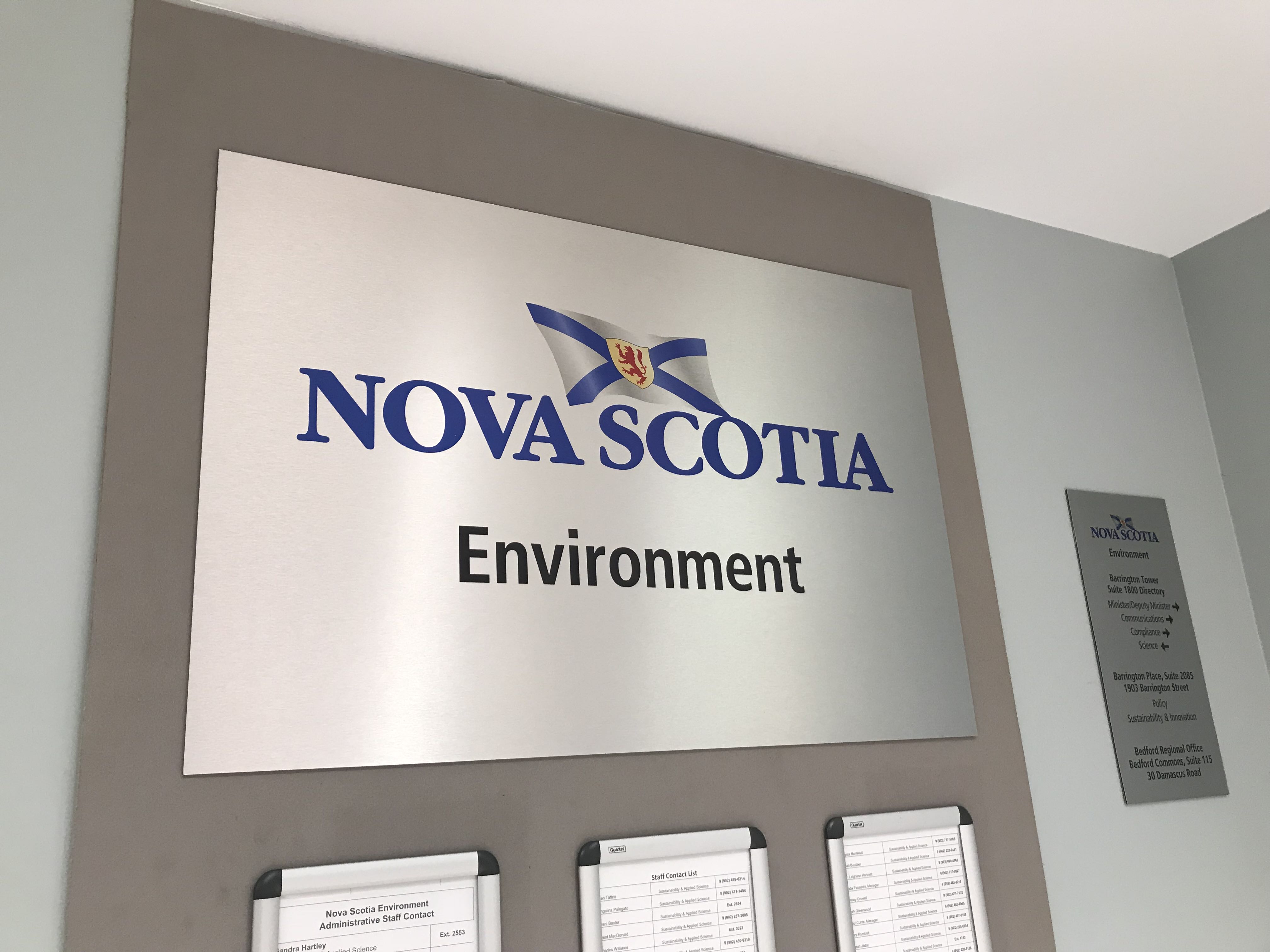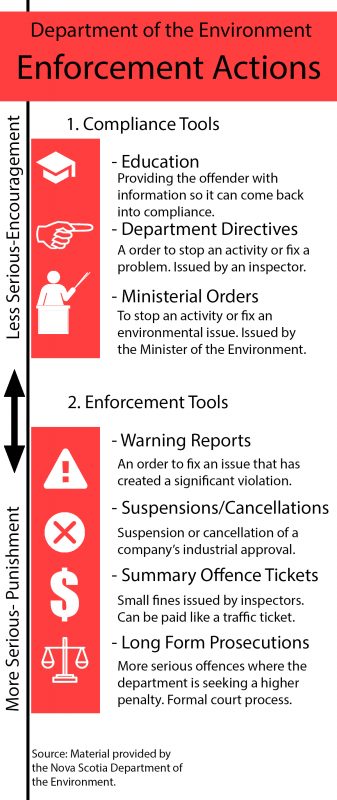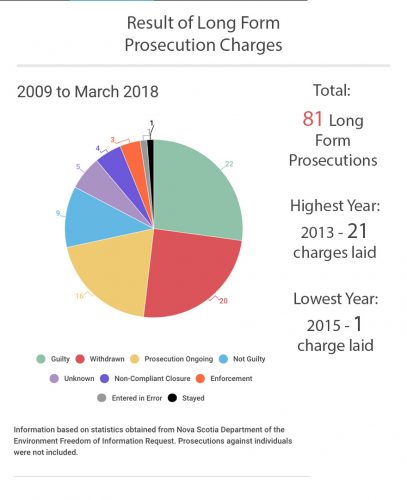enviroment
Analysis shows Nova Scotia municipalities frequent environmental offenders

caption
An analysis of data, obtained through a freedom of information request on summary offence tickets from 2012 until Jan 4, 2018, shows some of the province’s municipalities frequently commit environmental offenses.
The municipalities of Inverness, Annapolis, Pictou and Yarmouth each received three or more tickets during the six-year period. With 13 Inverness received the most violations. It had nine counts of contravening a term or condition of approval and four counts of contravening a directive.
The Municipality of the County of Annapolis received the second highest number of tickets with seven. Six tickets were issued for contravening a term or condition of approval and one for was for contravening a directive. The data only included SOTs issued by the province, not other enforcement actions such as departmental directives or ministerial orders.
In total, municipalities and government entities received 52 summary offence tickets from 2012 to 2018, while private companies received 108. Individuals received 123 tickets, 57 of which were for some form of littering.
SOTs are issued by environmental inspectors after an offence under the Environment Act or regulations has taken place. The accused can either pay the fee upfront, or take the fine to court. Between 2012 and 2018, 122 tickets were paid voluntarily and 115 resulted in court ordered fines.
Joel Corcoran, manager of compliance and enforcement at the Department of the Environment, said when a SOT is issued it represents the minimum amount the department can fine an offender under legislation.
SOTs fluctuated between 2012 and the beginning of 2018. The number of tickets issued peaked in 2016, with 64 being issued. In total, 283 were given to companies, municipalities and individuals in the years analyzed.

caption
Corcoran wasn’t sure if municipalities faced more enforcement actions, compared to private companies. However, he said, the difference could be because they need more industrial approvals to operate things like garbage dumps and for water filtration services.
“All of those larger departments that they would have within the municipality require approvals from us … if you’ve got more approvals the chances of you get more enforcement actions are there,” he said.

caption
Long form charges are enforcement actions and mean a more serious violation has taken place, or it’s when the accused hasn’t properly fixed an issue, said Corcoran.
“Generally if we issue those we’re seeking something more significant,” he said. “So that will go before a judge.”

